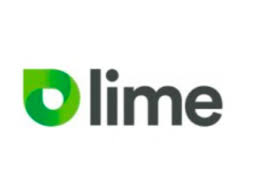“Our range of energy solutions are based upon our expertise in understanding the unique needs of different types of businesses.” — Lime Energy Website
 Apparently, understanding the unique needs of different kinds of businesses does not extend to accounting practices at Lime Energy. The SEC has fined the company $1 million and four of its executives are further charged with accounting fraud.
Apparently, understanding the unique needs of different kinds of businesses does not extend to accounting practices at Lime Energy. The SEC has fined the company $1 million and four of its executives are further charged with accounting fraud.
This is another example of unethical behavior supplanting ethics because the executives felt that they had the opportunity and the means to carry out a scheme to manipulate the stock price. The executives felt they were the brightest “guys” in the room and that no one at the SEC would be any the wiser.
Lime Energy – The Fraud
The accounting fraud scheme was designed to push revenues into earlier periods to meet targets. In this fashion, it was made to appear that the company was being efficiently run and they were meeting all of their objectives.
The fraud took place from 2010 to 2012, but officials concede it may have been longer. The accountants for the energy services company “recognized” at least $20 million in revenues by recording revenue for newly signed contracts before year-end before the paperwork was received. In addition the company claimed revenue on non-existent contracts also to boost the stock price.
The company’s controller at the time, Julianne M. Chandler allowed accounting entries worth millions of dollars in additional 2011 revenues after the fiscal year had been closed.
In February 2012, the company’s then-executive vice president James G. Smith sent Chandler more fake accounting entries for 2011, knowing full well the revenues were non-existent.
Though they paid the fines and penalties, neither Lime Energy nor their executives were said to admit or deny the allegations. This is akin to a three year old with his hand in the cookie jar and crumbs all over his face admitting to eating the cookies.
Four executives of the company have agreed to pay $150,000 in additional penalties and Chandler and Smith will not be permitted to serve as company directors for the next five years, with the former utilities division vice president of operations agreeing to a permanent officer ban. The company’s then-CEO has reimbursed the company for his cash bonuses and certain stock awards during the period when the company committed accounting violations.
Lime Energy – In it together
Unethical behavior of this nature occurs because a group of individuals felt they were above ethics, and no doubt they never received meaningful ethical training. In addition, CPAs such as Julianne M. Chandler went against every licensing requirement and certification she had ever been taught.
While she has been barred from being an officer or director of Lime Energy for the next five years, I would not be surprised if the state accountancy board got involved in some type of review process. I also doubt that prospective employers of any publicly-traded company would seriously consider her for a position. It is unimaginable that the shareholders of another company would stand for her being hired.
The fact that none of the employees who were caught admitted or denied their guilt is of scant comfort. It is easy to see “why” they would do such a thing; for greed or personal gain but the important question might be: “How long did you believe the cover up would last?” Sooner or later the SEC and its investigation teams would have uncovered the fraud. Sooner or later the executives must have known that they would get caught.
Oftentimes in cases of fraud the pressure to perform is much more powerful than having common sense and good ethics. Each one of the charged employees had the ability to refuse or to walk away. The only conclusion was that it was a group decision and that the entire group found themselves above the law. I am sure that felt they could justify their illegal actions down the road. All they succeeded in doing was to destroy their careers.


